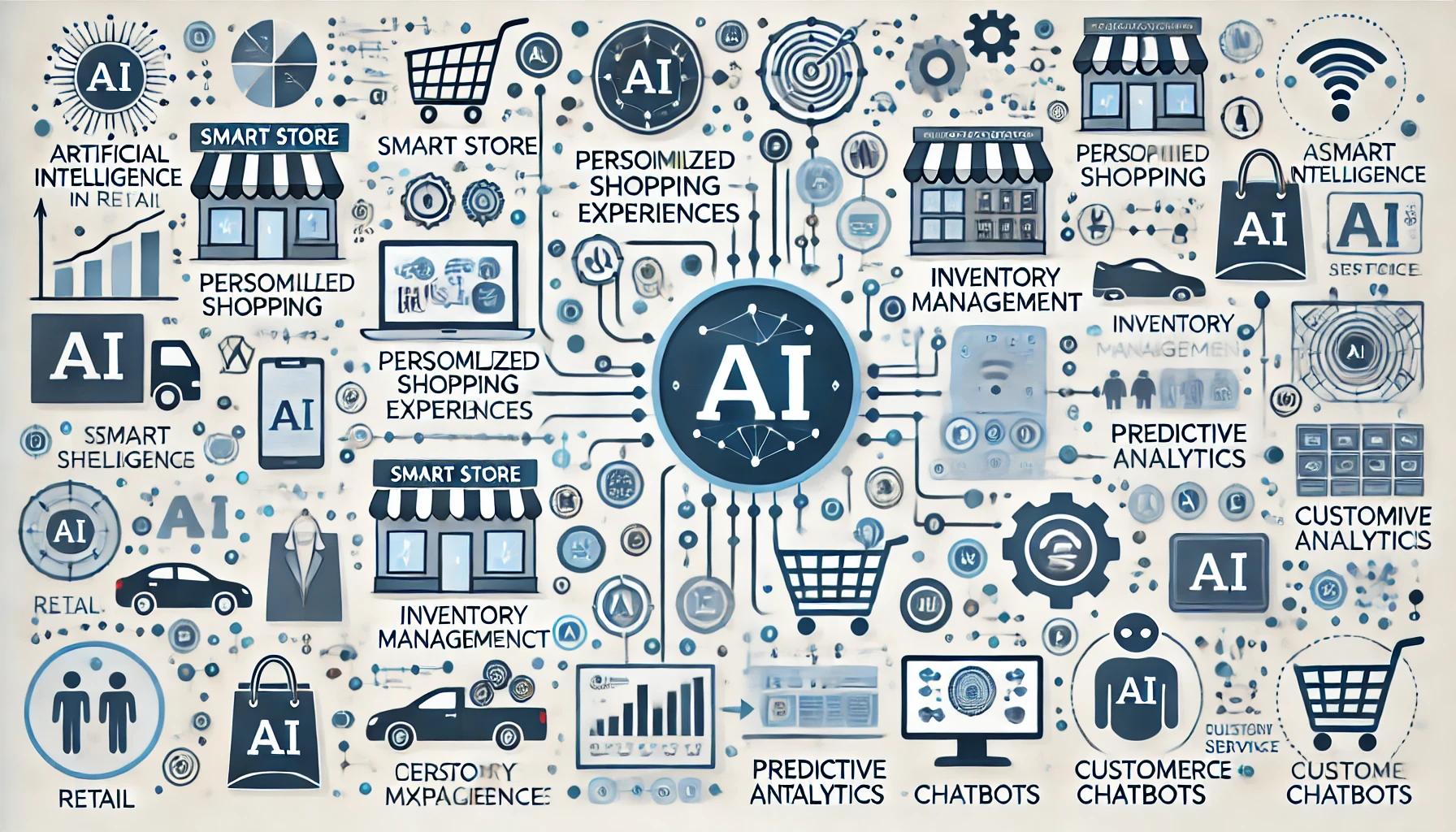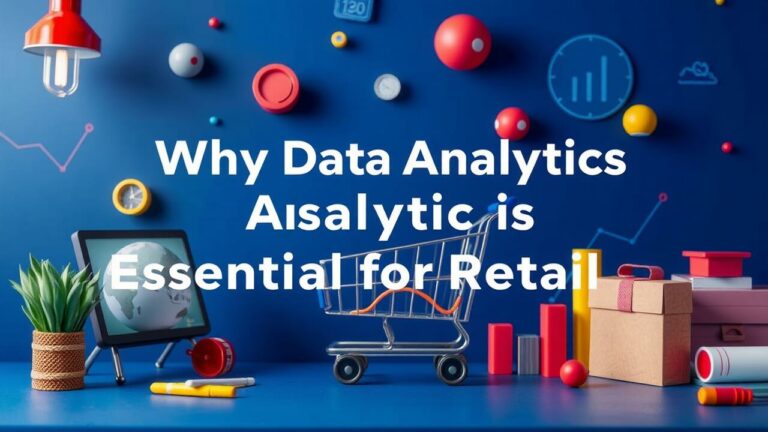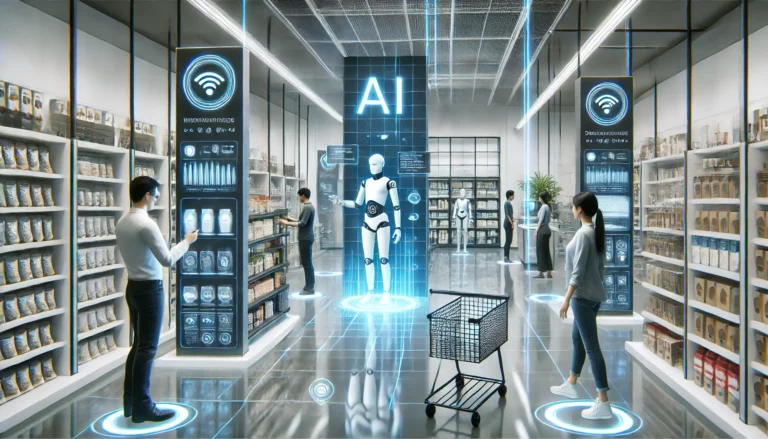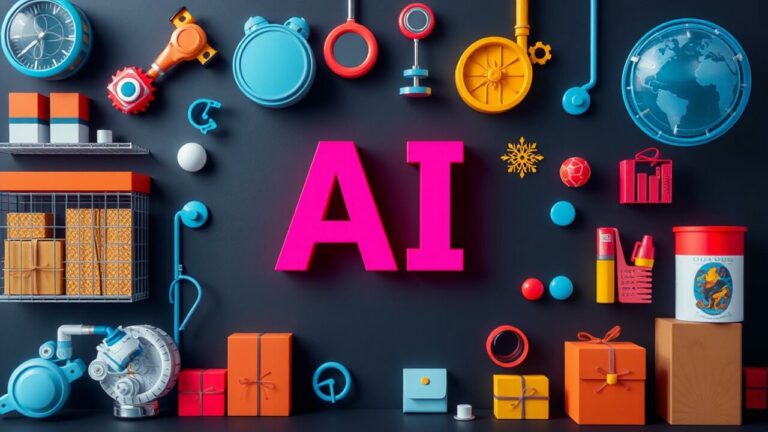How to Integrate Artificial Intelligence in Retail
Artificial Intelligence (AI) is revolutionizing the retail industry. With the rapid advancements in technology, integrating AI into retail operations is no longer a futuristic concept but a present-day reality. In this comprehensive guide, we will explore the various ways AI can be incorporated into retail, providing you with actionable insights to enhance your business operations and customer experience.
Understanding the Benefits of Artificial Intelligence in Retail
Before diving into the integration process, it’s essential to understand the benefits AI brings to the retail sector:
- Enhanced Customer Experience: AI can personalize shopping experiences by analyzing customer data and providing tailored recommendations.
- Operational Efficiency: Automation of routine tasks, such as inventory management and customer service, allows for more efficient operations.
- Data-Driven Decision Making: AI can analyze vast amounts of data quickly, providing valuable insights for strategic decision-making.
- Cost Savings: By automating processes and improving efficiency, AI can lead to significant cost reductions.
Step-by-Step Guide to Integrating AI in Retail
1. Identify Key Areas for Artificial Intelligence Implementation
Start by identifying the areas within your retail business that could benefit most from AI integration. Common areas include:
- Customer Service: Implementing AI chatbots to handle customer inquiries and complaints.
- Inventory Management: Using AI to predict stock levels and manage supply chains.
- Personalized Marketing: Leveraging AI to create customized marketing campaigns based on customer behavior.
2. Choose the Right AI Solutions
Selecting the appropriate AI tools and technologies is crucial. Here are some popular AI solutions for retail:
- Chatbots and Virtual Assistants: Tools like Zendesk and Drift can enhance customer service.
- Predictive Analytics: Solutions like IBM Watson and Google Cloud AI can help with inventory management and sales forecasting.
- Personalization Engines: Platforms like Dynamic Yield and Salesforce Einstein can provide personalized shopping experiences.
3. Develop a Clear AI Strategy
Develop a strategy that aligns with your business goals. Consider the following aspects:
- Objectives: Define clear objectives for what you aim to achieve with AI.
- Resources: Allocate resources, including budget and personnel, for AI implementation.
- Timeline: Set a realistic timeline for the rollout of AI solutions.
4. Train Your Staff
Ensure your staff is well-trained to work with AI technologies. This includes:
- Workshops and Training Programs: Conduct regular training sessions to familiarize employees with AI tools.
- Ongoing Support: Provide continuous support to address any challenges that arise during the integration process.
5. Monitor and Evaluate
Once AI solutions are implemented, continuously monitor their performance and evaluate their impact on your business. Use metrics such as customer satisfaction, operational efficiency, and cost savings to measure success.
Examples of AI in Retail
To help you understand the practical applications of AI in retail, let’s look at some real-world examples:
- Amazon Go: Amazon’s cashier-less stores use AI and computer vision to automate the shopping process, providing a seamless customer experience.
- Sephora: The beauty retailer uses AI-powered chatbots and virtual try-on features to enhance online shopping.
- Walmart: Walmart employs AI for inventory management, predicting stock levels, and optimizing supply chain operations.
Integrating Artificial Intelligence in Retail not only enhances operational efficiency but also significantly improves the customer shopping experience. Retailers can leverage AI technologies such as chatbots and predictive analytics to streamline their operations and provide personalized services. By incorporating AI, retailers can stay competitive in the ever-evolving market, reduce operational costs, and make data-driven decisions that enhance customer satisfaction and loyalty. Implementing AI in retail is a strategic move that can lead to increased sales and improved customer retention, making it a worthwhile investment for any retail business.
Informative List of AI Tools for Retail
Here’s a list of some essential AI tools that can transform your retail business:
- Zendesk: For AI-powered customer service solutions.
- Drift: For creating conversational marketing and sales chatbots.
- IBM Watson: For comprehensive predictive analytics.
- Google Cloud AI: For scalable AI and machine learning solutions.
- Dynamic Yield: For personalized customer experiences.
- Salesforce Einstein: For integrating AI into CRM and marketing strategies.
Conclusion
Integrating AI into retail operations is not just about adopting new technology; it’s about transforming the entire shopping experience. From personalized marketing to efficient inventory management, AI offers a plethora of benefits that can take your retail business to new heights. By following the steps outlined in this guide, you can successfully integrate AI into your retail operations and stay ahead of the competition.
Remember, the key to successful AI integration lies in understanding your business needs, choosing the right tools, and continuously monitoring and evaluating the impact. Embrace the power of AI and revolutionize your retail business today!






